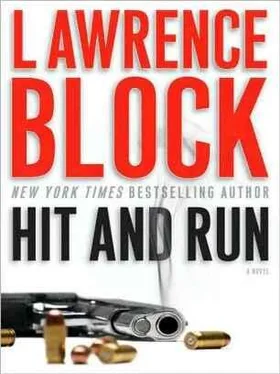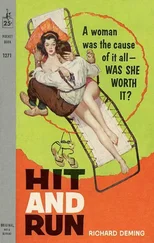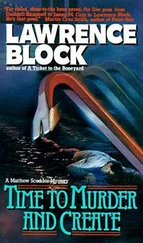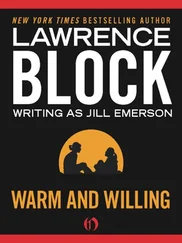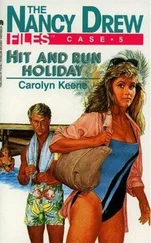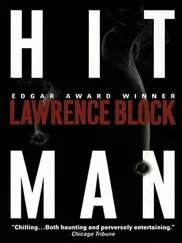“Not walking,” Keller said.
“Not on this leg, you’re right about that. Point is, either you kill me or he does. Either way it’s the same ending. So I think maybe I’ll see how long I can hold out.”
“There’s only one problem with that.”
“Oh?”
“Sooner or later,” Keller said, “your wife’s going to come home. She was dressed for a day on the town, so maybe she’ll go shopping, maybe have lunch with a girlfriend. If we’re gone by the time she gets back, she’ll be fine. If we’re still here, we’ll have to deal with her.”
“You’d hurt an innocent woman?”
“It wouldn’t hurt her much. She’d get what the dog got.”
“Jesus Christ, what did you do with the dog?”
Keller brandished the pry bar, made a chopping motion with it. “Hated to do it,” he said, “but I couldn’t take the chance he’d bite somebody.”
“Aw, God,” Taggert said. “Poor old Sulky? He never bit anybody in his life. He could barely bite his dinner. Why’d you go and do a thing like that?”
“I didn’t feel I had any choice.”
“Yeah, the poor old guy might have licked your face. Slobbered all over you. He’s got arthritis, he can barely walk, most of his teeth are gone—”
“It sounds like I did him a favor.”
“Sometimes I think I’m a hard case,” Taggert said, “and then I run into a son of a bitch like you. My kids loved that fucking dog. He’s been part of the family longer’n they’ve been alive. How am I gonna explain to them that their buddy Sulky’s dead?”
“Make up some story about Doggie Heaven,” Dot suggested. “Kids buy that crap all the time.”
“Jesus, you’re colder’n he is.”
“And speaking of the kids,” Keller said, “if you’re still holding out when they come home—”
“You’d do that?”
“I’d rather not, but if we’re still here when they turn up, you want to tell me what choice I’d have?”
He looked at Keller, looked at Dot, looked down at his own broken leg. “It hurts like a bastard,” he said.
“Sorry about that.”
“Yeah, I can tell. Okay, you win. Between you and him, either one of you would kill me, but he wouldn’t come after my family.”
“What’s his name?”
“Benjamin Wheeler. And you never heard of him. That’s his fucking secret, nobody ever heard of him.”
“Call me Ben,” Dot said.
“How’s that?”
“Never mind,” Keller said. “Keep talking. His address, his schedule, everything you can think of.”
“That’s a nice computer his kids have,” Dot said, “and a real fast broadband connection. You go to Google Image and type in ‘Benjamin Wheeler’ and you get a ton of hits. You make it ‘Benjamin Wheeler Portland’ and it narrows it down.” She was holding three sheets of paper, and she showed one to Taggert. He nodded, and nodded again at each of the other two sheets.
Keller took one of the sheets he’d nodded at and looked at a color photo of three men standing next to a horse. A fourth man, the jockey, was on top of the horse, and one of the men was holding a trophy, to be presented to the horse, the jockey, or the owner. Keller couldn’t tell which, nor did he know which of the men was Wheeler — although he was ready to rule out the jockey.
He looked at the other photos, and there was only one man who appeared in all three. In one he was with two women, posing for the camera, while the third shot showed him and another man in conversation. In each of the pictures Wheeler was the dominant figure, taller than anyone else, except for the horse. He dressed in expensive suits conservatively cut, and wore them with the ease of a retired athlete. His dark hair was well barbered, his face deeply tanned, and he wore a mustache.
“‘Financier, sportsman, and philanthropist,’” Keller read aloud.
“A hell of a guy,” Dot said. “On all these committees for civic betterment. Patron of local cultural events. That one woman there is an opera star, and there was a pretty good shot of him shaking hands with the new mayor, but I thought three was plenty.”
“You could have a hundred pictures,” Taggert said, “and that’s as close as you’re gonna get to him, because you can’t just pick up a Bible and go ring his doorbell. He’s got a house that’s the closest thing I’ve ever seen to a castle, up on a hill with an electric fence around the whole property. You got to go through a gate to get close to the house, and the guy on the gate confirms by intercom before he lets anyone in. If you got over the fence, you’d have the dogs to contend with, and you couldn’t deal with them the way you did with poor Sulky. Man, I can’t believe you killed my dog.”
“Then don’t.”
“They’re Rhodesian ridgebacks, a boy and a girl, and if you took a swat at one of them, he’d take your hand off at the wrist, while his sister was having your balls for dinner. Get past ’em somehow and make it into the house and he’s got four guys on staff, and they’ve all got guns and know how to use ’em. When he leaves the house, two of them go with him, one to drive and one to ride shotgun. The other two stick around and guard the house.”
“All those precautions,” Keller said. “I guess a lot of people must have tried to kill him over the years.”
“Why? Mr. Wheeler’s respected throughout the state, he calls the mayor and the governor by their first names. As far as I know, there’s never been a single attempt on his life.”
“No kidding. Where do you keep your guns?”
“My guns?”
“You know.” He pointed his finger, wiggled his thumb. “Bang! Your guns.”
There was a locked gun rack in the den, and the key was where Taggert had said it would be — and, Keller thought, right where any kid would look for it. Keller took the shotgun and slipped a few shells in his pocket. He left the rifle in the rack. He could fire a rifle but wasn’t that confident of his ability to hit anything with it. With a shotgun, all you had to do was get close enough to the target. A clay pigeon might present a certain challenge, but a human being standing still would be pretty hard to miss.
“They’re for hunting,” Taggert said, “and if I’ve gone out three times in the last ten years it’s a lot. Hell, if I was a hunter, you think my dog’d be a corgi? I still can’t believe you killed my dog.”
“You said that before. You must have handguns.”
“Just the one, in the bedside table. For emergencies.”
It was a revolver, a.38 Ivor Johnson, immobilized with a cylinder lock. Keller had a vision of an intruder surprising the Taggerts in their sleep, and Taggert yanking the gun out and rushing to the den for the key. Handy.
“It’s hard to believe you’re a pro,” Taggert said. “Taking my guns? You didn’t bring your own?”
“You offered me a choice of guns in Des Moines,” Keller reminded him. “So I’ve come to think of you as my regular supplier.”
“You took the revolver. Were you even planning on using it?”
“No,” Keller said, “but it came in handy later on.”
“You could have an AK-47 and you wouldn’t have a chance with Mr. Wheeler. You know what I would do in your position?”
“Tell me.”
“Put the guns back, let yourselves out, and go home. Mr. Wheeler won’t send anybody after you because he’ll never know you were here. He’s sure not about to hear it from me.”
“You can tell him you broke your leg tripping over your dog.”
“Jesus,” Taggert said. “I can’t believe you killed the poor damn dog.”
“Let’s be clear on this,” Keller said. “Packing up and going home, that’s not on the table. So what you’ve got to do is come up with a way for us to get to him.”
Читать дальше
